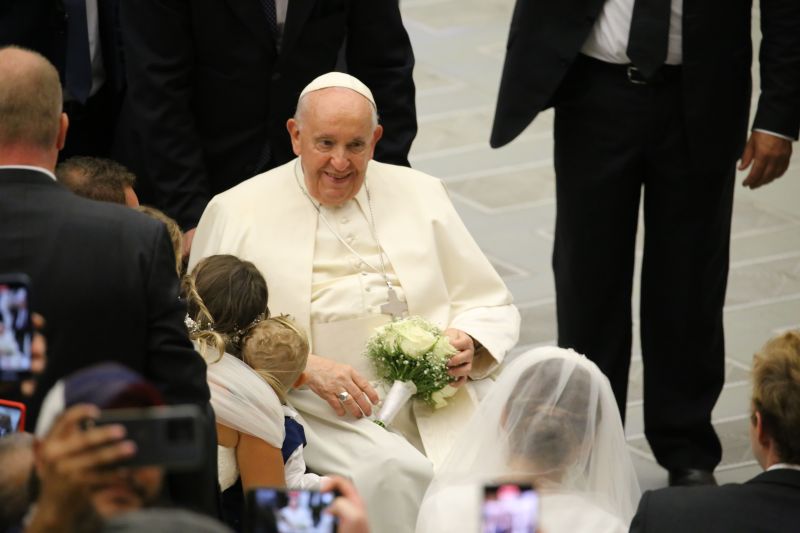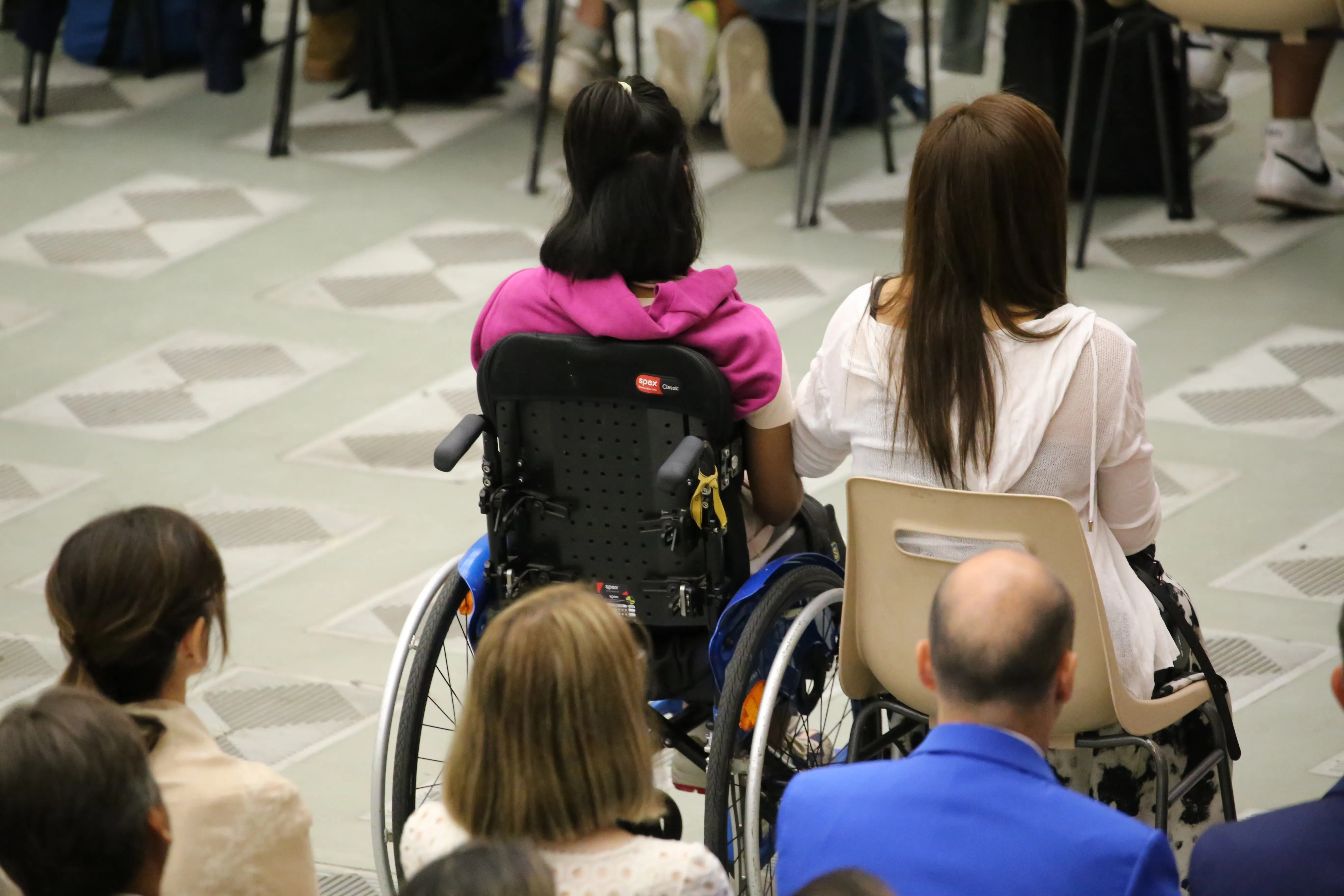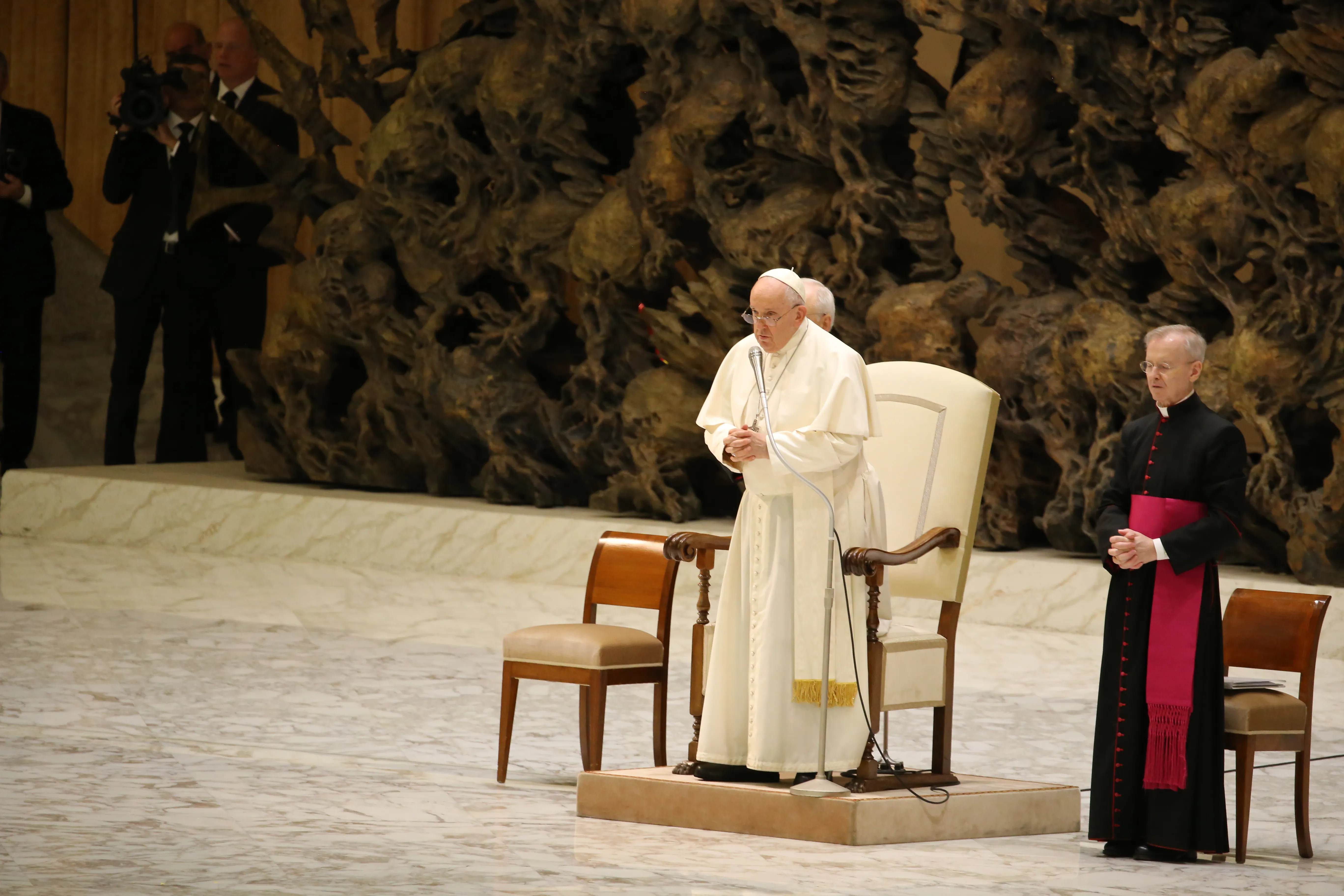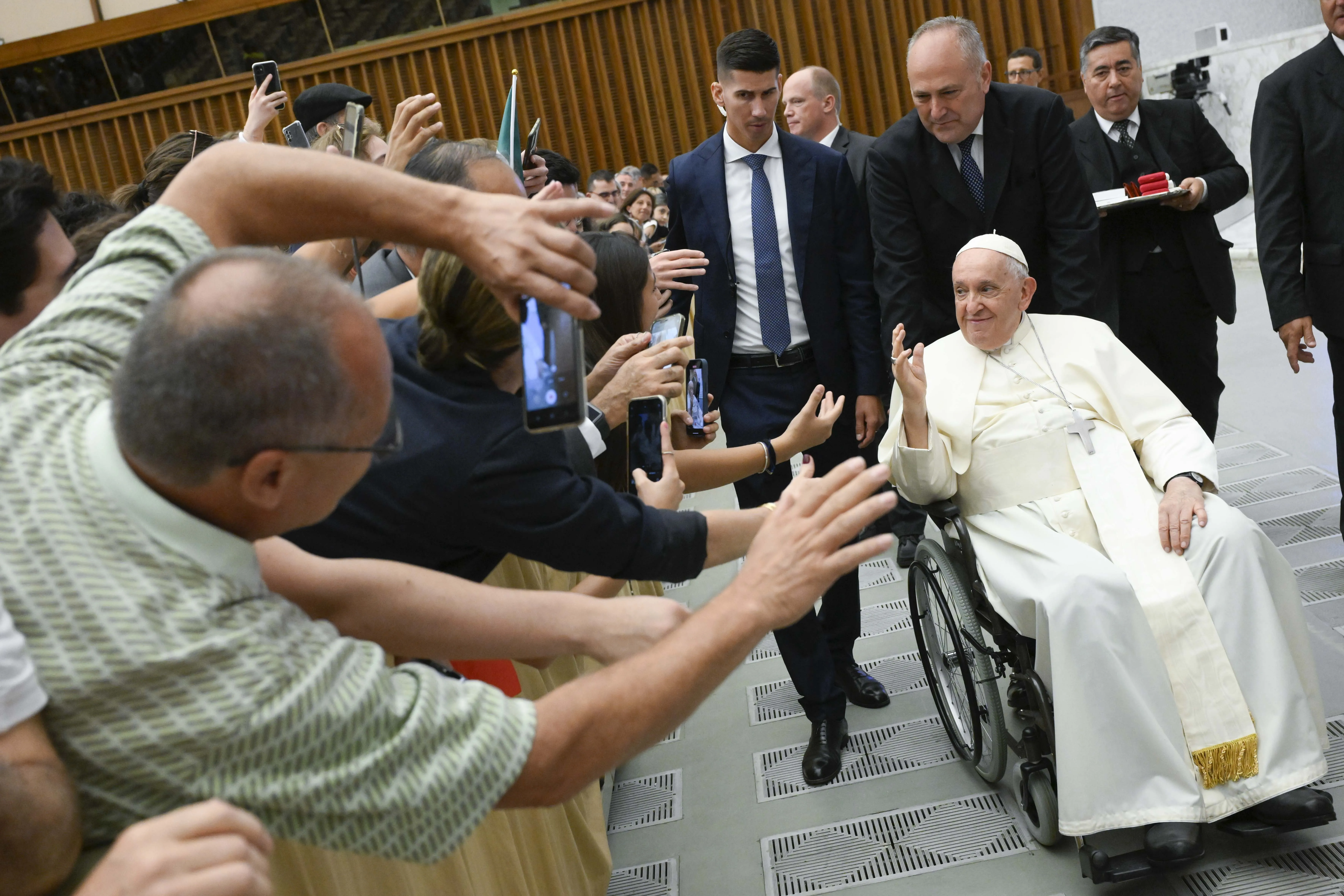
Vatican City, Oct 17, 2017 / 02:34 pm (CNA/EWTN News).- Among the most lasting aspects of a Pope’s leadership is his appointment of bishops. To understand a Pope, it’s important to understand how he makes decisions about episcopal leadership.
With that in mind, Pope Francis’ approach to the selection and appointment of bishops is worth considering.
When diocesan and auxiliary bishops turn 75 years old, they are required to submit a letter of resignation to the Pope, which he can accept immediately or at any time going forward.
At present, there are seven key posts in the world waiting for a new bishop. While it can take more than a year before a bishop’s resignation is accepted, many analysts anticipate a flurry of significant episcopal appointments over the next several months.
Bishops who recently submitted a letter of resignation to Pope Francis include Cardinal Donald Wuerl of Washington, DC; Cardinal Laurent Mosengwo of Kinshasa (Democratic Republic of Congo); Cardinal Wilfrid Fox Napier of Durban (South Africa); Cardinal Oscar Rodriguez Maradiaga of Tegucigalpa (Honduras); Cardinal Norberto Rivera Carrera of Mexico City; Cardinal André Vingt-Trois of Paris; and Archbishop Peter Okada of Tokyo.
What will Pope Francis’ criteria be in appointing new bishops to these significant dioceses?
Some recent appointments may shed light on his priorities.
Pope Francis recently appointed Mario Delpini, 66, to serve as Archbishop of Milan, succeeding Cardinal Angelo Scola. Delpini served as Milan’s auxiliary bishop for a decade before being appointed archbishop.
Archbishop Delpini had been a collaborator with the three previous archbishops of Milan, Cardinals Martini, Tettamanzi and Scola. Unlike his predecessors, however, all of his priestly life took place in the Archdiocese of Milan.
Pope Francis also recently appointed a Vicar of Rome, the title used for the functional head of the Diocese of Rome. To replace Cardinal Agostino Vallini, the Pope picked Bishop Angelo De Donatis, 63, who preached the 2014 Lenten spiritual exercises to the Roman Curia, and was appointed an auxiliary bishop of Rome in 2015.
Archbishops Delpini and De Donatis have several things in common. They both have extensive pastoral experience, both are considered ideologically moderate, and both were already connected to the dioceses they’d been appointed to lead. These are said to be key criteria in the episcopal appointments of Pope Francis.
In fact, the Pope’s apparent criteria were a factor in many of his other notable appointments.
In 2014, the Pope chose Cardinal Reinhard Woelki as Archbishop of Cologne, moving him from his post in Berlin. Cardinal Woelki’s move to Cologne was a return to his hometown. When he was appointed, he was noted for his human touch, his pastoral work and simple style of life – television news pieces featured him washing his clothes personally and cooking at his home.
The same year, the Pope picked Carlos Osoro Sierra as the Archbishop of Madrid, and later named him a cardinal. Cardinal Osoro Sierra is known as the “little Francis” in Spain, largely because of his pastoral gifts and his missionary impulse, which have been a transformational factor for the Church in Spain.
Given these four examples, what is the Pope going to do with the Church in the U.S.?
Over the past year, Pope Francis has appointed 16 U.S. bishops, most of them in smaller dioceses or as auxiliaries. The major pending question is that of the successor of Cardinal Donald Wuerl, the Archbishop of Washington, D.C. Cardinal Wuerl is already 76 years old, more than a year beyond the normal retirement age.
The post in Washington, D.C. is a key post, as it involves both pastoral care and institutional relations with the U.S. political establishment. What will Pope Francis do?
An insistent rumor says that Bishop Robert W. McElroy of San Diego might be at the top of the list of the post.
Bishop McElroy recently grabbed headlines for jumping into the discussion on LGBT issues that followed Fr. James Martin’s book, “Building a Bridge.” Bishop McElroy has defended the book, and Martin, in the face of criticisms of his work.
He also recently took part in a Boston College conference on Amoris Laetitia, hosted by Cardinal Blase Cupich and Father James Keenan, SJ. During the conference, Bishop McElroy reported on the diocesan Synod he launched on Amoris Laetitia, and said that Catholic teaching must take seriously the complexity of adult moral life.
Among observers, he is considered a figure similar to Cardinal Blase Cupich, who was personally chosen by Pope Francis in 2014 to lead the Archdiocese of Chicago. This seems to suggest that he is a fit for Pope Francis’ model of episcopal leadership.
Of course, his appointment is simply a rumor, just as another rumor in Rome says that the Pope will soon call Cardinal Cupich to lead an important Vatican office in Rome.
There are no confirmation of rumors, and sometimes gossip is just a way to test possible reactions to an appointment. Such rumors are typical in such a moment of transition.
It’s worth noting that Pope Francis might also be reconsidering the selection process for bishops.
During the June 12-14 meeting of the Council of Cardinals, a new procedure for the appointment of bishops was discussed. It was not the first time the cardinals who advise Pope Francis have addressed this issue.
In particular, the Holy See Press Office explained that the consultation before the appointment of a new bishop might involve more local priests and laity. In the end, a bishop’s appointment is always a Pope’s appointment. However, the Pope receives suggestions – usually in the form of a set of three – from the local nuncios of each country, who consult broadly, and “interview” a number of people before suggesting any name to the Pope.
The idea being suggested is to emphasize the local level, rather than the nuncio’s suggestions. One of the issues apparently of concern is the way that nuncios gather information, as the standard questionnaire they deliver is said to be too dated.
If you value the news and views Catholic World Report provides, please consider donating to support our efforts. Your contribution will help us continue to make CWR available to all readers worldwide for free, without a subscription. Thank you for your generosity!
Click here for more information on donating to CWR. Click here to sign up for our newsletter.







Cd Cupich and Bp McElroy could hardly be described as “ideologically moderate”, rather as on the extreme fringe of theology and governance ideas.
As someone more familiar than most with the process here in the US, the first rule is the rejection of any candidates put forth by “culture warrior” or traditional bishops (Chaput,Dolan, Sample). Second, a preference for men from the ideological left. Then, if they can’t be found, then bland administrators with an expertise in canon law.
The result is a return to the uncertain, bland, beige Catholicism of the 1970s.
It is pretty sad that we are now defining our clergy in terms that mean nothing. Right and left are political ideologies. I would prefer to know if a person up for the bishophric causes scandal, supports heretodox positions, and cultivates confusion and scandal among the faithful. Bishop McElroy is one such example of all of the above and does not promote Christ in His fullness to the truth to all people. If that is a person that Pope Francis sees as a faithful steward of the sheep of Christ then the Church will suffer more down the line. We need Pope Francis to serve the deposit of faith and truth. He needs to stop being covertly dismissive of supporting dogma and doctrine that has been established after many centuries of debate. Development of doctrine is not contradicting the previously held faith and making it relative to the spirit of the age as if truth is malleable. Ask our mother to intercede on our behalf for faithful priests, laity leadership, bishops, cardinals, and the Holy Father.
Plus also lets have correct our understanding of what Papal Infallibility means.